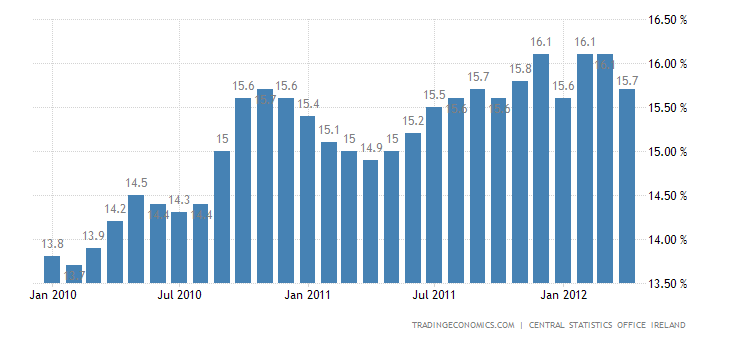And you got your economics degree from where? Because you're going to have to do a LOT more work than this to try to outdo Krugman.
Can you outdo Milton Freidman? Does that mean I can use Milton Friedman as a reference. He also won a nobel price. He even got it in something that was relevant to what he talked about daily. Krugman got it for trade theories, and even on that field he is weak.
Reality is, they won their price for influencing people, they did not win the price for being good economists. In fact they are both terrible economists, because their agenda prevents them from doing proper research. Secondly, just because you are an economist, does not mean you are correct. Or else, the crisis wouldn't have occoured. A crisis Krugman thought would be a slowdown. He also predicted it to happen in 2006 and kept revising.
To cite Krugman is like citing Bill Maher or Bill O'reilly. That may work on Fox News or Democratic Underground, but not here.
Greece cooked their books, which is why their problem is by far the worst. But austerity has stalled out their economy entirely. The same thing is happening in Spain, which is the Eurozone's third biggest economy and could be a MASSIVE problem for the world economy if they collapse. The only way out of recession is spending.
Really, what about Japan? They did exactly that, they just kept spending and their economy never recovered. Because of the spending, bad debt was never liquidated. And because of the spending, then their public debt went out of control. Also, Ireland and Iceland didn't do badly. What about Latvia? They had a fall of 18% of GDP over one year, current account deficit was at 20%. Unemployment rose to 20%. Now, they have a 6% growth, positive balance sheet, positive current account and an unemployment of 14%.
There needs to be a balance, and we need to look at other factors such as confidence. If you keep lying like Greece and the EU did, then who knows what will happen tomorrow. Two really bad years is better than a miserable decade. It also gives the economy the possibility to recover and rebalance.
History and present conditions prove that austerity is a failure during a recession.
Austerity's Greatest Failure - Matthew O'Brien - Business - The Atlantic
Dumbest article I have ever read. It pretty much goes like this, Uh... US got a lower bond yield than Portugal, and the same as UK, and did no austerity. That means austerity is bad. Why do you cite it? It makes you look dumb.
Also, UK did not do much austerity. Then they wouldn't have got an inflation rate of 5%. That is one of the things Friedman proved. That high inflation was caused by the government inflating the money supply, which is the opposite of austerity.
“It took 30 years of frivolous public spending to bring the country to a debt-to-GDP ratio of 120%. Two years of severe austerity brought debt to 168% of GDP. Obviously the medicine didn’t work.”
(from this
article)
The austerity didn't bring it to 168% of GDP. The crisis did.
There's ample evidence that austerity is a failure as a policy.
I must say your evidence is pretty terrible. Even I can make better arguments than that for your point.
I can tell you what does not work. Having an outside country telling a country what to do, and essentially removing your democracy. Because guess which country is going to be blamed, if it goes haywire? Also, imposed austerity is much tougher to accept. EU shouldn't have tried to control Greece, let the Greeks find out where they want to cut.

